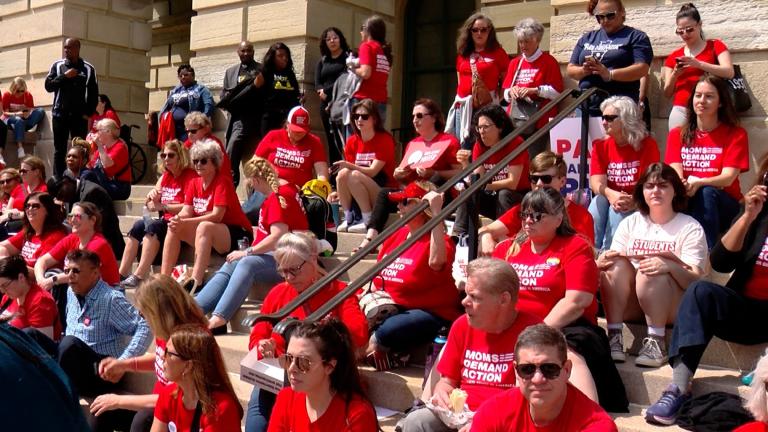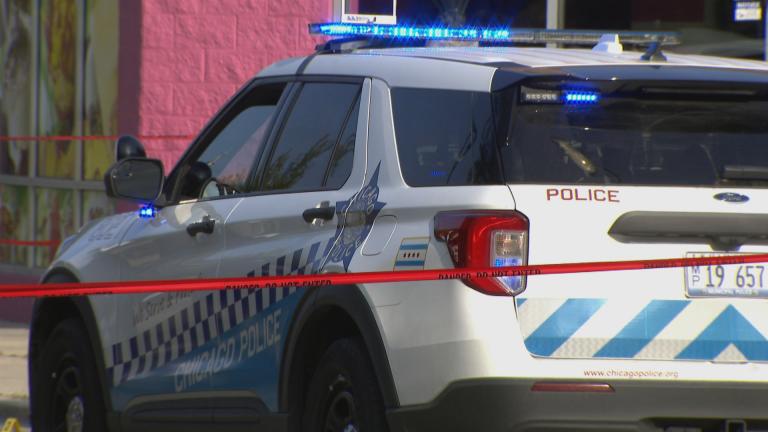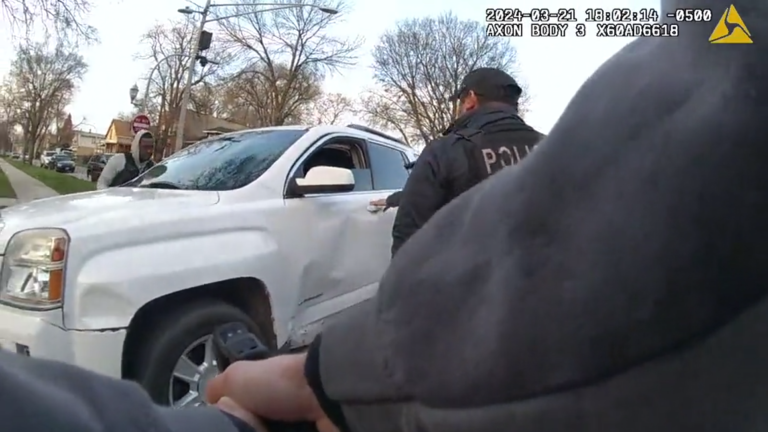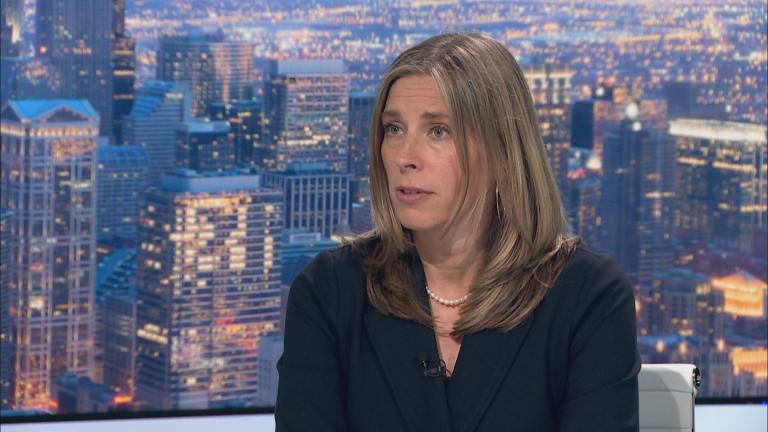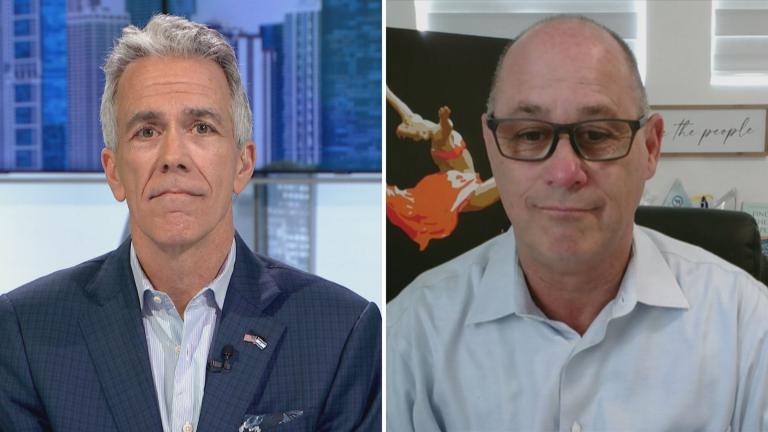As he opened a hearing of the Senate Judiciary committee on Wednesday, U.S. Sen. Dick Durbin (D-Illinois) offered a sobering statistic: So far in 2022 — not even halfway through the year — there have been 24 shootings in American elementary, junior and high schools.
The latest was on Monday, when 19 children and two teachers were shot and killed in a classroom at Robb Elementary in Uvalde, Texas by a teenager armed with AR-15s.
“Another day in American. Another mass shooting,” Durbin said. “It is devastating that this kind of shooting can happen here. It is unconscionable that it happens over and over.”
And Congress hasn’t responded.
“Prayers and thanks and then we return to our normal lives and then we wait for the next gun tragedy, which we know is coming,” Durbin said.
The hearing’s objective was to hear testimony from President Joe Biden’s nominee to direct the nation’s top gun enforcement agency, a position that has been vacant for seven years.
Durbin alleged that’s because the gun lobby wants it that way.
Biden’s nominee for head the Bureau of Alcohol, Tobacco and Firearms, Steve Dettelbach, does not have a lock on the job, and in the hearing sought to assure senators he would keep politics separate from his job of enforcing the law and advancing public safety.
“Firearms violence and mass shootings are increasing. Hate crimes and religious violence are increasing, as is violent extremism,” Dettelbach said. “If confirmed, I promise to do everything I can to enforce the law, to respect the Constitution of the United States and to partner with law enforcement to protect the safety and the rights of law-abiding Americans.”
If Tom Vanden Berk had his way, there would be more laws to enforce.
Vanden Berk’s son was killed in the early 90s in gun crossfire at a party.
Now, Vanden Berk heads the Gun Violence Prevention political action committee, G-PAC, that seeks to use the power of politics to pass gun laws.
“We just cannot have deranged 18-year-olds, if you will, individuals with serious mental health problems, have such access to lethal weapons that can, as you see, just massacre a county, a city, a school,” he said. “We have a serious problem in this country and we’re afraid to face it. We in Illinois think we’re taking a step in the right direction to make that happen.”
Illinois has in recent years passed a red flag law, which provides a path to keeping those deemed by the courts as a danger to themselves or others from having a gun.
Gun owners must have a state Firearm Owners Identification (FOID) license and gun dealers must able be licensed.
A law signed this spring makes illegal “ghost guns,” or firearms without serial numbers.
But there’s no federal law requiring background checks.
“The fact that we haven’t seen anything happen in this area is strictly a matter of the kind of intimidation that the gun lobby has done,” Vanden Berk said. “And now we see radical folks who are so intimidated by the NRA, by the gun lobby, they cannot make any reasonable decisions to give the general public what they want in this country. And that is sensible gun laws.”
Texas Gov. Greg Abbott was scheduled to speak Friday at the National Rifle Association conference in Houston.
At a Wednesday press conference about the Uvalde shooting he questioned why Illinois’ strong gun laws aren’t stopping violence in Chicago.
“I hate to say this, but there are more people who are shot every weekend in Chicago than there are in schools in Texas,” Abbott said. “And we need to realize that people who think that maybe we just implement tougher gun laws, it’s going to solve it. Chicago and L.A. and New York disprove that thesis.”
Illinois Gov. J.B. Pritzker took to Twitter to push back.
“Don’t feed into the false narrative about Chicago and Illinois – it’s an excuse that politicians like you hide behind to stop the federal legislation we need to keep guns out of the hands of dangerous people,” Pritzker wrote. “You are lying about Chicago and what actually perpetuates gun violence. The majority of guns used in Chicago shootings come from states with lax gun laws.”
Northwestern University’s Lori Post, who researches mass shootings, indirectly pushed back Abbott’s assertion.
Post said gun restrictions are only as strong as the “weakest link” given that someone can easily drive across the border to buy a gun banned in their own state.
To prevent future mass shootings, a federal approach that restricts so-called “assault weapons” and high-capacity magazines is needed, she said.
Post says her research shows that mass shooting deaths declined for the decade (1994-2004) when a federal ban on military-grade weapons was in effect.
Not just because those weapons are more lethal. There were also fewer mass shootings, period.
“Because basically men who commit mass shootings, they need to feel hyper-masculine and the way they feel that way is hurting little children, hurting innocent people, people that are unarmed. And they don’t want to go to that kind of a mass shooting or a massacre unless they’re properly armed with assault weapons,” Post said. “So take that away and they lose a lot of their confidence that they can kill as many people as possible.”
The Uvalde gunman, she noted, saved up to buy his rifles, planned and plotted and told people about his intent to annihilate.
While some have described the shooter as mentally ill, Post cautioned against calling perpetrators of public mass shootings as having mental health issues.
She said that further stigmatizes people with mental health conditions. The Uvalde gunman doesn’t qualify, she said.
“I define that by a criminal justice perspective where: Does the person understand that if they pull the trigger, that it’s going to result in injury and death. And yes, this person knew exactly what he was going to do,” Post said.
When innocent people, and especially children, are killed “we don’t understand it,” Post said.
“And the way we make sense of it, is we attribute it to mental health. So I just want to point out: That is not it. This is an evil person. Some people are just evil,” Post said.
She said prevention should be targeted at keeping guns and especially deadly assault weapons from individuals who are threatening, menacing and are subject to restraining and stalking orders.
U.S. Sen. Mike Lee (R-Utah) raised related issues during Dettelbach’s nomination hearing.
Lee said following tragedies like in Texas, there’s a failure to examine the root causes of what he called “rampage violence.”
“Questions like … why is our culture suddenly producing so many young men who want to murder innocent people? Raises questions like, you know, could things like fatherlessness, the breakdown of families, isolation from civil society or the glorification of violence, be contributing factors,” Lee said. “Instead, the left once again is calling for more gun control.”
Some have suggested as a solution to post armed guards at schools or to equip teachers with guns.
Something the Illinois Education Association’s vice president, former high school math teacher Albert Llorens, rejects.
“Just like we do not support arming educators, we do not support us requiring teachers to be mental health experts. We need psychologists, we need social workers with realistic caseloads,” Llorens said. “I worked in an area where we had one social worker for every 800 kids. You can’t handle that.”
More guns will exacerbate violence, not eliminate it, he said.
Installing metal detectors at schools may also cause youth trauma, Llorens said.
“We need some change. We have a choice: We need some common sense gun laws to stop these weapons from getting into the hands of those too sick to handle them, and to restore mental health services that once existed in our schools,” Llorens said. “And to strengthen those outside of schools because … this is ubiquitous. And it’s ridiculous. You don’t know whether you’re going to be executed on the spot going to McDonald’s. And a child should not have to fear for their lives.”
Since 2019, Illinois has required schools to have threat assessment teams and plans. A new law signed in May will allow the state to track whether school districts are in compliance.
Follow Amanda Vinicky on Twitter: @AmandaVinicky

